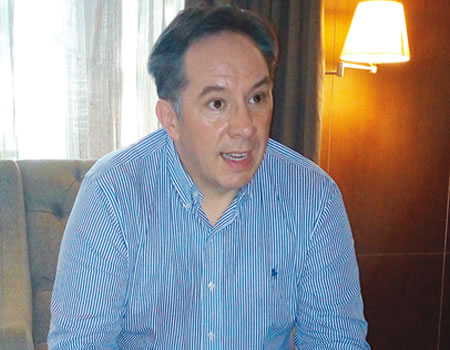What are you doing to encourage people to sort their wastes considering that materials we throw as waste are still useful?
Sorting of waste is not something that is easy to practise in Nigeria. It requires individuals having different coloured bins to sort different types of waste materials is the challenge at present is getting people to put their waste in a bin. When you start asking them to put recyclable products in the green bin, put cans in the yellow bin and so on, it becomes stressful to them because many had to be forced to even take one bin unlike in Germany and in the UK where people are used to sorting their waste. So, sorting of waste is just part of the solution, not the whole solution. If you look at places where people comply with waste management procedures like Victoria Island, it is only successful there because they get penalized and fined so it is a kind of chicken and egg situation. So where sorting works is to get peoples’ minds working towards maintaining our environment and proper waste disposal and that we cant waste plastic resources anymore. And that is what our project is doing now, we are looking at producing kerosene, diesel and liquid fuel from the plastic waste and sell to people to use to power their generator or fuel their cars.
So what is the waste of energy about?
Actually, there are two types of converting waste to energy; there is the waste of electricity but we are not working on that because the challenge at present is that the cost of electricity is quite low, so getting energy from waste through the incineration process to steam is quite expensive, where it works is where I have to pay someone to take my waste away for me to generate electricity but that doesn’t work in Nigeria. But technology-wise, it is absolutely possible. Our own project is not about electricity, we are sorting plastics to produce biofuel. What we will do is to heat the plastic at very high temperature, then, we will refine the liquid products to make kerosene, diesel and petroleum that would be sold on a commercial scale. That is very feasible in Nigeria.
When are you going to start?
The stage we are now is waste characterization like you saw today. We have done waste characterization in UK and Nigeria; we compare the different types of waste in UK and Nigeria. We already have a prototype system already in the UK but it is not commercial yet. But with our partners; Cranfield University and Syngas products, I can assure you that it can and will be done on a commercial scale in Nigeria. We haven’t gotten to that but within the next eight to nine months, we will be out with the commercial stage; the beauty of Nigeria is that we have a very high level of plastic wastes much higher than in the UK.
How would you assess waste management in Oyo State?
We took over waste management in Oyo State early this year; in February. Oyo State is Oyo State, let me put it this way; the people of Ibadan are very peculiar. I know a little about the history of Ibadan that it was settled by warrior tribes; they have a high spirit; stubborn, ready to fight and very combatant. I have said it very often that Ibadan people will fight you over N20 just for the principle of it. So, there is a balance to be struck between providing for a service and expecting to be paid for service. Now, I think personally that we are much farther on our road to proper waste management in Oyo State than when we started. We aren’t there yet but if I have to score our company, I will give us about seven out of 10 for what we have been able to do but the remaining three to give us a 10 over 10 is a lot of hard work. We have done a lot of work, it is challenging and there are a lot of cases filed frivolously against us but like I said, Ibadan people like to fight; I think this is good because it brings everybody to account and keeps them on their toes. However, it can get quite ridiculous after a while and it stalls good work. Though we have great support from the Commissioner for Environment and Senator Ajimobi, the state governor in what we are doing. We are not given a fully free hand and they pull us back when the need is and it has been good, and when we get the required transformation, Ibadan can be a great place to live and work. It isn’t the dirtiest city in Nigeria anymore and that is very sure. At the moment, I estimate we collect 60 percent of the waste generated in Ibadan while the remaining 40 percent gets thrown into rivers and canals or get burnt. But even at that, the 60 percent of waste we collect is already in excess of 40,000 tonnes monthly. So plastic to produce fuel is not an issue here. We have more than enough of it for this project and a hundred other projects.





